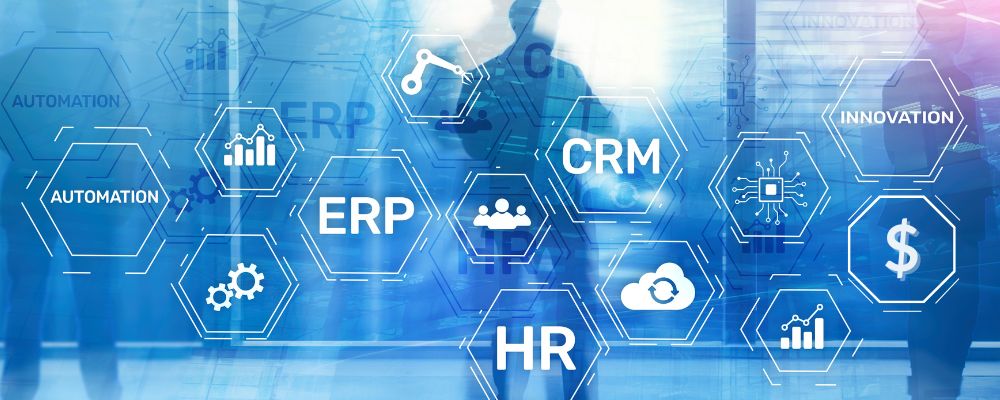Avoid Cloud ERP? Here’s What You’re Really Losing

Maintaining the status quo is often a recipe for falling behind. Companies that choose to resist the migration of their ERP systems to the cloud may unknowingly be accumulating hidden costs and jeopardizing their future success. By migrating to a modern cloud ERP solution, companies can unlock greater agility, strengthen cybersecurity, and streamline operations. Embracing cloud technology is no longer just a trend; it’s essential for businesses looking to innovate swiftly, bolster their security, and optimize operational efficiency.
Legacy ERP Fails to Scale with Growing Manufacturing Businesses
One of the most significant risks of not moving to the cloud is limited growth and scalability. Remaining tethered to on-premise systems can severely hinder your business’s ability to adapt and compete with rivals leveraging the agility of cloud-based ERP solutions.
Cloud ERP allows employees to access crucial business applications and data from anywhere, fostering collaboration across different geographies and time zones, a necessity highlighted by the global shift towards remote and hybrid work. This immediate access to real-time data empowers quicker decision-making; for instance, remote sales teams can instantly check inventory levels, ensuring confident customer order commitments.
- Integration Benefits: Many cloud ERPs are equipped with integration platforms that simplify connections to other software solutions. Teams can tailor their systems to fit unique business processes without significant overhauls.
- Flexible Scalability: On-premise system adjustments can take weeks or months. In the cloud adjustments can be made in a matter of minutes providing crucial flexibility during peak seasons or unexpected surges in demand.
- International Growth: If your business plans to expand internationally, cloud ERPs can easily accommodate new currencies, languages, and regulatory requirements without the need for extensive reconfiguration.
- Missing AI Innovation: Delaying cloud migration means potentially missing out on AI-powered innovation and new features that cloud ERP providers regularly push out. Don’t risk falling behind more agile competitors who leverage AI to improve efficiency.
Legacy ERP Systems Mean More Compliance Vulnerability
Sticking with on-premise systems exposes businesses to heightened security and compliance vulnerabilities. Legacy systems may lack the enterprise-grade security features that modern cloud solutions offer, including built-in disaster recovery, automated backups, and real-time threat monitoring.
The number one reason people decide to go to the cloud is due to the barrage of cyber security attacks.
A recent report from Sophos indicated that 65% of manufacturing companies experienced ransomware attacks in the past year, with the majority occurring outside of regular business hours. Failed backups often result in several weeks of lost production and revenue.
Cloud ERP provides data encryption at rest and in transit, multi-factor authentication, and frequent security assessments. Cloud providers often offer service level agreements guaranteeing uptime and disaster recovery protocols. Compliance with standards like FedRamp for US Federal agencies and GDPR for businesses operating within the European Union is also more readily managed with cloud ERP.
Legacy ERP Systems Lead to Higher Operational Costs in Manufacturing
Relying on traditional infrastructure often leads to higher operational costs. The ongoing need to maintain aging hardware, perform software upgrades, and manage legacy systems can drain IT resources and divert them from strategic initiatives. Cloud Migration can offload numerous IT tasks freeing up team for more strategic work and great efficiency.
Moving to the cloud offers predictable costs, as cloud subscriptions typically include expenses for hardware, software, security, disaster recovery, and backups. This eliminates the risk associated with aging hardware and the potential for costly downtime due to server failures. Cloud-based solutions help companies avoid the accumulation of technical debt associated with outdated systems and custom applications, preventing expensive and disruptive upgrades. It’s worth asking what future costs you may incur by keeping these old systems. Avoid a pattern of making quick decisions that sacrifice long-term quality and maintainability.
Moving to the cloud isn’t just about keeping up with technology—it’s about staying ahead in the game. By making the switch, businesses can tap into new growth opportunities, beef up their security, and cut down on operational costs. The flexibility of the cloud means you can quickly adapt to whatever the market throws your way. Think of cloud migration as a smart, strategic move that sets you up for long-term success.
Ready to take the leap?
Contact WM Synergy today and learn more about migrating your system to the cloud.


